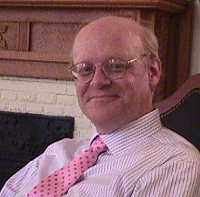
We do not need science and philosophy to know what we should do to be honest and good, yea, even wise and virtuous, argued Kant in his Fundamental Principles of the Metaphysic of Morals.


It was Romanticism that led us from classical prudence to the shrinking violet that prudence seems to be today.

Intuitive reason marked out the ultimates in both directions, while prudence makes us take the right means. Aristotle called it practical wisdom in the Nicomachean Ethics, and contrasted it with intuitive reason, the natural endowment Aristotle thought some people had for understanding what was ultimately right and what was ultimately wrong. This would have surprised the classical philosophers, who thought of prudence as one of the four cardinal virtues, and who linked it to shrewdness, exceptionally good judgment, and the gift of coup doeil ”the coup of the eye”which could take in the whole of a situation at once and know almost automatically how to proceed. Prudence carries with it today the connotation of prude”a person of over-exaggerated caution, bland temperance, hesitation, a lack of imagination and will, a person who walks with mincing steps. which ought always to regulate the public service, and without allowing it to degenerate into a violent and remorseless revolutionary struggle. Lincoln had little notion that, over the course of a hundred and fifty years, this commitment to prudence would become a source of condemnation rather than approval. Even in the midst of the Civil War, he promised that the war would be carried forward consistently with the prudence. Lincoln insisted that he regarded prudence in all respect as one of the cardinal virtues, and he hoped, as president, that it will appear that we have practiced prudence in the management of public affairs. Much as Lincoln was a grass-roots, up-from-the-ranks politician, he was perfectly at ease in speaking the role of virtue in political life. Through much of American history, prudence was considered a desirable trait in public leaders”and the decay we have experienced in the word makes it difficult to understand the prime American example of prudence in political life: Abraham Lincoln. Say it to the faculties of American colleges in the nineteenth century, and you would have described part of the philosophy curriculum.

Say the word prudence to the ancients, and you would have named a virtue.


 0 kommentar(er)
0 kommentar(er)
